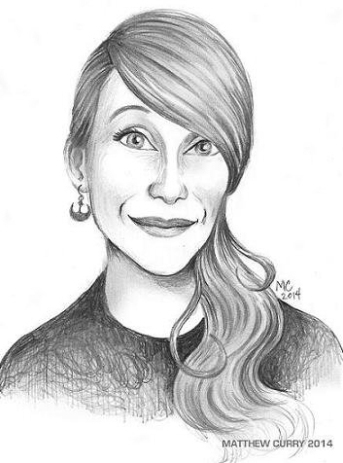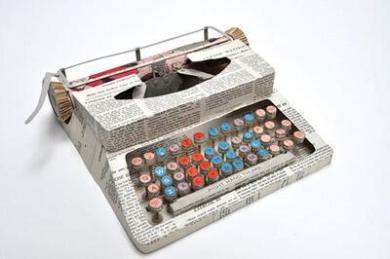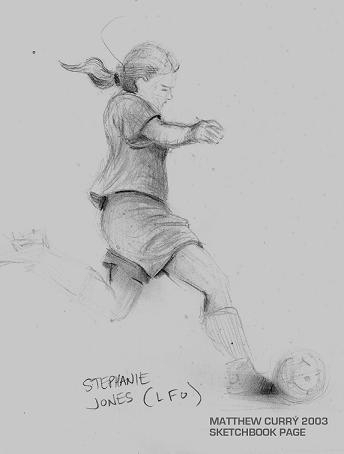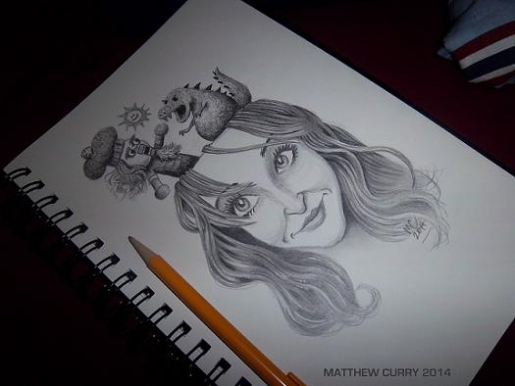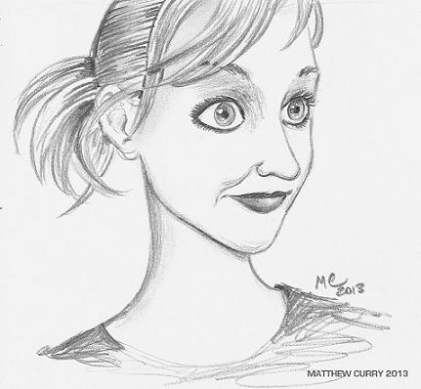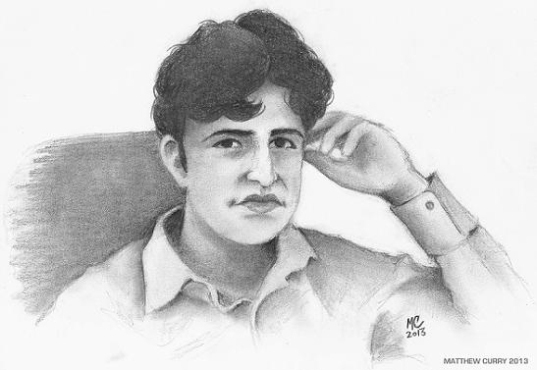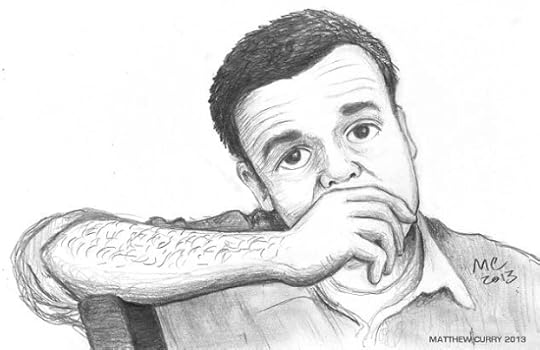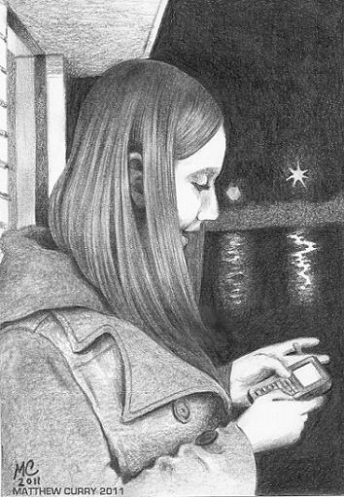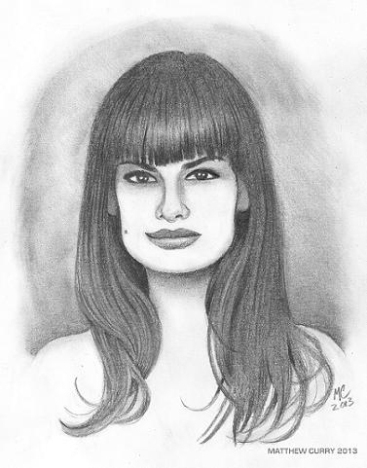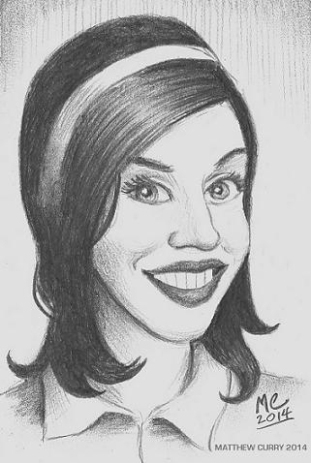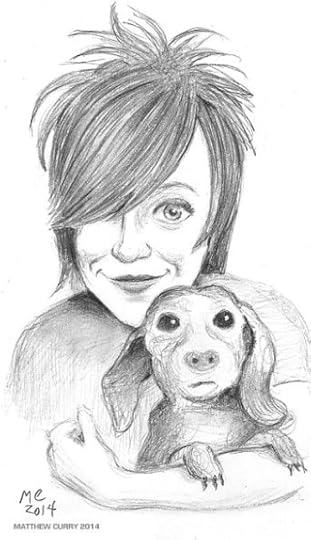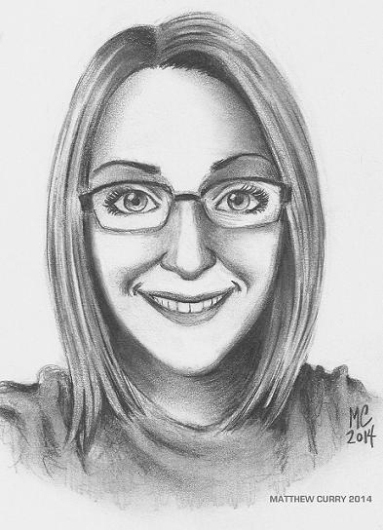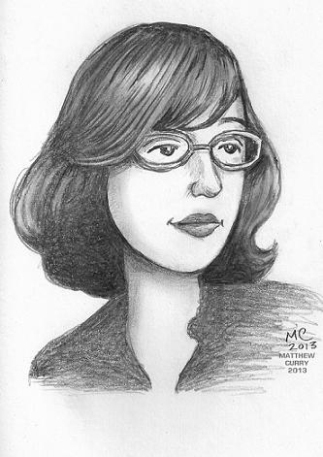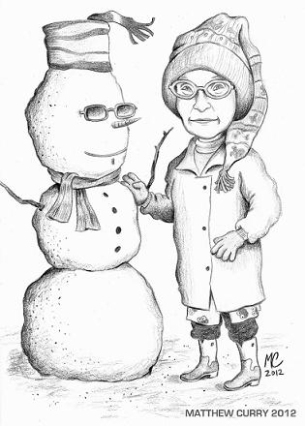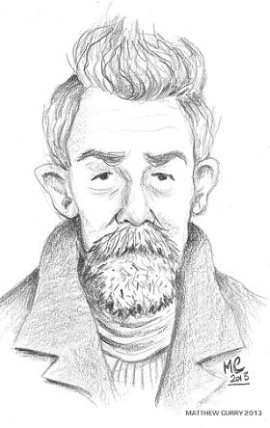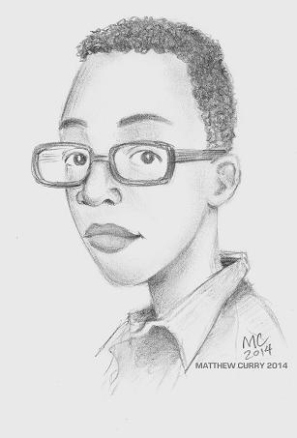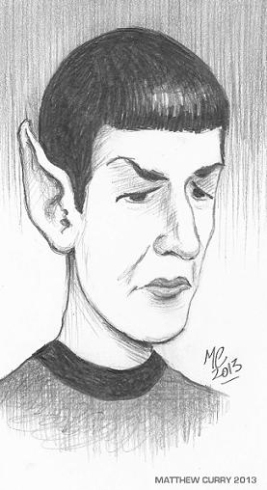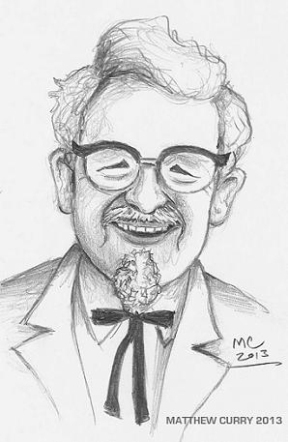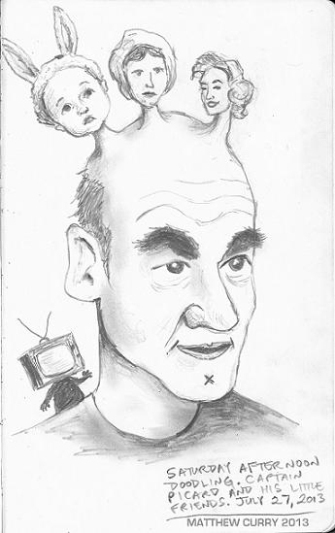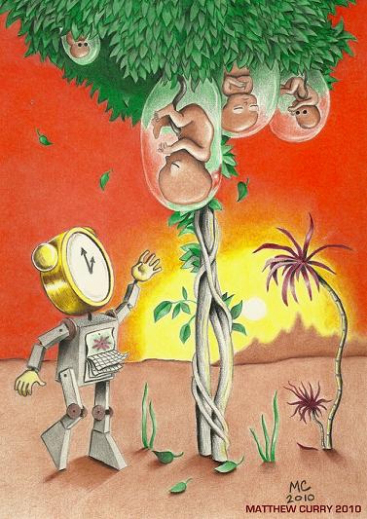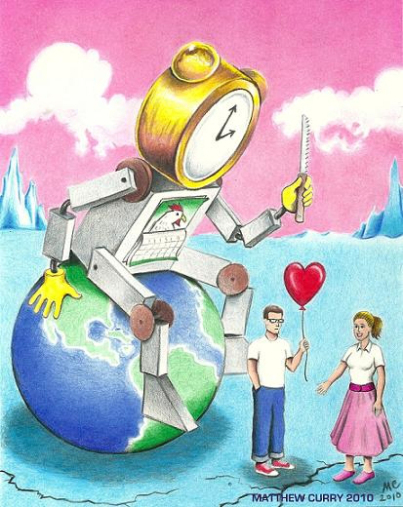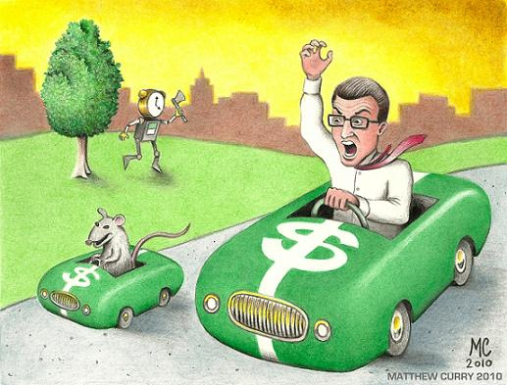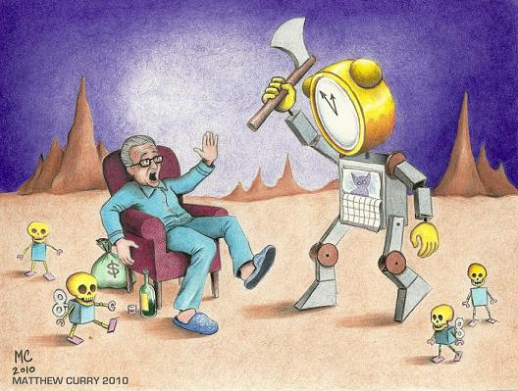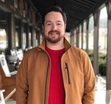Matthew David Curry's Blog, page 12
June 9, 2014
Sillysparrow Ness
This is a drawing of Sillysparrow Ness, a YouTube diva who talks about books, chickens, and Doctor Who. (And other subjects too.) I discovered her by accident a couple of weeks ago. She did an amazing job of dissecting and analyzing the episodes Human Nature and Family of Blood. I drew this picture while camping at a motel, drinking coffee and watching cartoons.


May 31, 2014
Long time, no see
Sorry I’ve been out of touch lately. Ever since I took the new job operating the pellet-shooter at work, I haven’t had time to do much else. The night shift is a harsh master. And during the time when I’m not working, I’m recovering from the time when I was working. But it’s only a temporary job. I should go back to my normal duties (and my normal life) in roughly a month. I’m looking forward to it. I don’t mean to complain. I’m thankful to have a job. It’s a blessing. But it demands all the energy I have. I stagger through the front door in the mornings feeling like I just had a lobotomy.
I hope you’ve been doing well. I hope you’re having a good summer … or winter … or whatever season it is in your corner of the world.
The picture up above is my friend Katrina. It’s one of the few drawings I’ve done since I started working on the pellet machine. Katrina just moved to Florida today, so this is my going-away present to her.
Oh, and Citizens of Purgatory is free for the next couple of days. If you have a Kindle, or a Kindle app on your phone, you can click here to download it.


April 27, 2014
My writing process
Recently, my friend Liz Fountain tagged me in a “blog hop” series where various writers answer questions about the way they write. Here are my answers.
1.) What am I working on?
At the moment, nothing. (Unfortunately.) Since my writing is a “glorified hobby” and not a major source of income, I have to do work that I’m not so passionate about during the day. Recently, I started a new job at a mill. In an effort to learn how to operate my pellet-spitting machine, I’ve decided to put my writing on hiatus and free up some space in my mind. Later, after I’ve conquered the machine and grown accustomed to my new job, I’ll start another book. (Or maybe just a short story. I haven’t decided yet.)
2.) How does my work differ from others in its genre?
So far, I’ve published two novels, Under the Electric Sun and Citizens of Purgatory, on Amazon.
Under the Electric Sun is a dystopian, post-apocalyptic, science fiction story set in a massive underground city beneath the ruins of Washington, DC. While the “after-the-end-of-America-as-we-know-it” scenario is vaguely similar to Hunger Games and other dystopian novels, my book contains a lot of offbeat humor inspired by Douglas Adams. The main character in Under the Electric Sun is a cybernetic raccoon named Tristan, a government-issued tutor. Tristan and his dim-witted student, Jake Sheldon, throw sarcastic barbs at each other throughout the book. When Tristan and Jake climb a secret staircase and see the surface of the earth for the first time, they enter the ruins of an affluent gated community where the locals have turned swimming pools into gardens and golf courses into wheat fields.
Meanwhile, Citizens of Purgatory takes place in Alabama in 2003. I don’t really know which category to put this one in. I suppose you would call it a slapstick Southern gothic comedy. When I was writing it, my biggest inspirations were Garrison Keillor’s radio stories and Confederacy of Dunces by John Kennedy Toole.
3.) Why do I write what I do?
I grew up with Doctor Who and Douglas Adams. I’m fascinated with science fiction, especially humorous science fiction. But I’m also madly in love with small town Americana, so I enjoy writing Southern gothic fiction too.
4.) How does my writing process work?
I start off with a vague idea of who the characters are and how the story will unfold. I write one chapter at a time, writing a rough draft of the chapter and fine-tuning it before I move on to the next chapter. Then I go back and overhaul all of them, moving through the manuscript one chapter at a time again. Sometimes I take brief vacations between chapters to avoid a nervous breakdown.
You can click here to order my books.
(The photo above is a paper typewriter made by Jennifer Collier. She’s a genius.)


April 21, 2014
The Black Keys

Here’s a colored pencil drawing of one of my favorite bands, the Black Keys. I heard an interview with them on an NPR show called American Roots last weekend. I don’t remember everything they talked about, but they said they loved 1950s nostalgia. I’m fond of the 50s too, so I decided to draw a picture of the Black Keys and throw in some classic Americana.
This post might not make any sense at all. I have a miserable headache right now. I’m going to bed. I hope you’re all doing well.


April 9, 2014
Free e-book
From April 10 through April 14, the Kindle version of Citizens of Purgatory will be free.
Nick Youngblood, the main character, just moved to Moccasin County two years ago. He works as a sportswriter at the local newspaper, even though he doesn’t know anything about sports. He stretches out his articles by packing them with lots of adjectives. Since Nick is relatively new to the small community, he hasn’t met many of the locals yet. One morning, as he drives to work, a wild-eyed stranger crashes into the back of his car. The man identifies himself as Angus Rayburn. After hurling insults at Angus Rayburn in the middle of the highway, Nick learns that Angus is a notorious murderer who only served a brief stint in prison. Nick’s heart is filled with terror as he realizes that he’s insulted a very dangerous man.
As Nick struggles to cope with the situation, he throws up on a cheerleader at a football game and loses his job with the newspaper. Next, he finds a job at a textile mill, the same place where Angus works. On his first day, Nick encounters Angus in the men’s room. The demented ex-convict pins Nick against the wall and promises to gouge out his eyes if he ever sees him outside the mill.
While Nick lives in a constant state of panic, worrying about Angus Rayburn, other fears and frustrations also plague him. He spends countless hours thinking of Ashleigh, a girl who sat in front of him in his high school algebra class. Nick desperately wants to find her and marry her. But, most of all, he wants to flee Moccasin County and move back home before Angus cuts out his eyeballs.
You can click here to take a look.
I hope you’re having a fantastic week.


April 6, 2014
Two Guys From the Enterprise
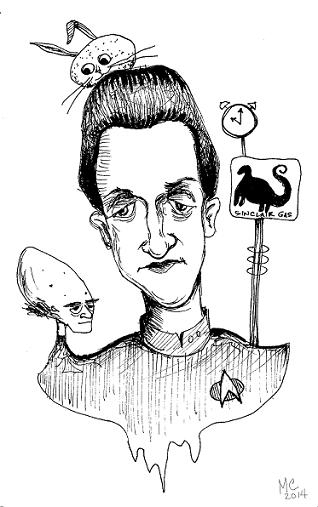
Here’s a caricature of Data and Captain Picard (the head on the left) from Star Trek: The Next Generation. I drew it in my sketchbook last night with a felt-tip pen and a Sharpie Marker.


April 5, 2014
How I became a sports fan
When I went to college in the late 90s, I wrote for the school newspaper. We only published one issue a month, but I poured all my energy into my articles and editorial columns, obsessively re-writing and polishing them late into the night, while guzzling Surge and eating bacon sandwiches from the gas station. I focused on the school newspaper with such single-minded passion that I neglected all my real classes … and therefore I flunked out.
After the college politely told me to go away, I started working at a potato chip bag factory, helping a man named Big Dan operate a giant machine called a laminator. The job wasn’t very complicated. I spent most of my time cutting sheets of plastic with a dull knife and prying lids off glue barrels. But Big Dan’s moods varied wildly from one minute to the next. Sometimes he danced and sang. Sometimes he burst into fits of rage, screaming at me and showering my face with drops of spittle. Every day, I dreaded Big Dan and his volatile mood swings.
Desperate to escape from the potato chip bag factory, I begged the local newspaper to hire me. I also drove to the surrounding towns, begging the newspapers there for a job. I wanted to write for a living. I told editors I would be happy to sit in a spider-filled basement and type obituaries as long as I could get out of the factory and squirm into the newspaper business.
Finally, an editor in a nearby town (a town I had never visited before my begging tour) said he needed a sportswriter. He asked me if I knew anything about sports. Smiling and fidgeting, I said, “Um, well, no, not really. But I would be happy to learn!”
Thus I began working as a sportswriter in January 2001. I wasn’t just a sportswriter … I was the only sportswriter at this particular newspaper.
I was also the sports photographer and the guy in charge of page layout. I covered the sports page with lots of pictures (big pictures) since my articles were so short and meager. At first, my stories only contained the final score, the names of the players who scored the most points, and a quote from the coach. Whenever I asked the coaches for their thoughts about the last game, I wrote down everything they said. Their terminology baffled me, but I nodded enthusiastically and pretended I knew what they were talking about.
I grew better over time. I learned that “PAT” stood for “point after touchdown.” I learned that a baseball team scores runs, not points. I learned to park my car as far away from the field as possible. I also learned a wide vocabulary of terms from Sports Illustrated and big newspapers which I incorporated into my own articles. For example, when a football team scores a touchdown, it’s better to say they posted a touchdown … or they lit the board … or they chipped away at the other team’s lead. These punchy little expressions fascinated me. The language was far more interesting to me than the games themselves. I never became an expert on sports, but I learned how to sound like one.
I loved and respected the athletes and the coaches and the work they did … but I never truly became a sports fan myself. I did become a devoted fan of the sports language, though.
I don’t work at the newspaper anymore, but I do like to listen to sportscasters on the radio sometimes. When I hear them throw around expressions like “lock horns” and “square off” and “buzzer beater” and “wild card,” it almost makes me want to go back to work at some seedy little newspaper office and bang out stories about games.
But not quite.
***
My new novel, Citizens of Purgatory, is based on some of my ridiculous experiences in the newspaper business. It’s available in paperback on Amazon. You can click here to order a copy.


March 31, 2014
Weekend sketching
Here are some drawings I’ve done recently. The first is Suzanne Somers. I drew her last weekend … or was it the weekend before? I can’t remember. Recent events are running together in my mind like oil in a parking lot. Anyway, I know for sure that I drew the second and third pictures this past Saturday. One is a caricature of Emily, a little girl who attends my church. I drew her in her taekwondo uniform. And the picture on the bottom is my new Facebook friend, Lorian Hemingway.
I drew the picture of Lorian Hemingway while spending Saturday night at the Econo Lodge in Rome, Georgia. I can’t explain it … I know it doesn’t make any sense at all … but I enjoy checking into a hotel room (once or twice a year) and drawing all night long, with nothing but the TV and the hum of the air conditioner to keep me company. It’s absolute bliss. In the middle of the night, I walked over to the diner next door (The Huddle House) and ate some greasy food. Then I returned to my room and kept on drawing. And this caricature of Lorian Hemingway is the result.
I’m not sure when I’ll post again. I haven’t been drawing as much lately since I’m still learning my new job. But I hope you’re all doing well and enjoying spring. (That is, if it’s spring in your part of the world … for some of you, I think it’s winter right now. Is it? Sorry. Never mind.)
***
If you’re interested, you can click here to order my novels from Amazon. The new one is called Citizens of Purgatory. It’s about the misadventures of a struggling young sportswriter in Alabama. The other is Under the Electric Sun, a dark dystopian story aimed at young adults. The star is an electronic raccoon with a bitter outlook on life.


March 21, 2014
A big pile of drawings
March 15, 2014
The lies I used to believe
I remember sitting on the floor of my bedroom as a teenager late one night, fiddling with the radio dial. It was July 4, 1995. I skipped from one station to another, listening to bits and pieces of grunge alternative music, until I was startled by an angry voice. A man was ranting about America, screaming into the microphone so loudly that many of his words were distorted. He sounded like he had just escaped from a mental institution. I gasped and leaned toward the speakers. The man said Independence Day was a joke. If he were sailing on the high seas, he said, and he saw two ships floating toward him — one ship flying a jolly-roger flag and the other ship displaying an American flag – he would steer toward the ship with the jolly-roger. He said pirates were more trustworthy than America.
Right away, I pulled my hand from the radio dial and laughed out loud at the screaming man. He sounded so ridiculous, growling and snarling. I heard him pounding his fists on the desk in front of him. I had never heard anything like it before.
Not only did the show grab my attention, the whole radio station seized me. I spent the rest of my teenage years listening to conservative talk radio – mostly because it was so outrageous and entertaining, but also because some of the philosophical arguments made sense to me. Amid the low-brow jokes about Bill Clinton and Monica Lewinsky, I also heard a lot of inspiring messages. The hosts often talked about the importance of setting goals and working hard to achieve them. They said people should have the freedom to pursue their dreams. I remember Rush Limbaugh saying that if you do what you love for a living, people will have to beg you to take a vacation.
I still believe those things – but there are a few things I don’t believe anymore.
The talk show hosts insisted that rich people are hard workers and poor people are lazy sluggards. If you’re rich, you deserve to be rich. If you’re poor, you deserve to be poor.
When I was younger, sitting in front of my radio, I gobbled up this message. I believed that all wealthy people were honest, diligent, goal-oriented citizens … and poor people just needed to get off the couch and find a job.
Now that I’m 34 years old, I know this idea is nonsense. The world is filled with poor people who work hard every day. They work long hours, sometimes juggling multiple jobs, and they still live from paycheck to paycheck, biting their nails and wondering how they will pay their bills each month.
For five years, I worked at a textile mill, barely scraping by. During those five years, the mill never gave me a pay raise. (It wasn’t just me. The mill is known throughout the community for being tightfisted and stingy with the regular employees while the people in upper management swim in cash.) The most insulting thing about the mill is this: even though they refuse to give raises, they happily donate heaps of money to the local high school sports teams.
Why does the mill sling money all over the community? Is it because the company big shots are generous people? Obviously not. It’s because the government gives them tax breaks for their “charitable” donations. They gain money by giving money away.
Recently, it occurred to me that the government should give tax breaks to companies that pay workers well. Meanwhile, companies that pay workers poorly should be taxed brutally.
This might help some of the hardworking poor people in our country.
(I don’t usually talk about politics on this blog, but I’ve felt really annoyed about this situation lately. I’m not an expert on any of these things at all. My opinion isn’t worth much. But I would rather offer a solution to the problem than simply gripe about it. Griping is therapeutic, but it doesn’t really fix anything.)
***
You can click here if you would like to order my novels, Citizens of Purgatory and Under the Electric Sun. My new novel, Citizens of Purgatory, is a dark comedy set in Alabama. It’s roughly based on some of my experiences in the mill.



